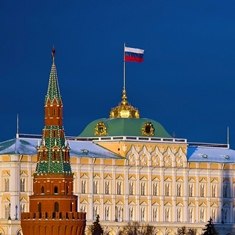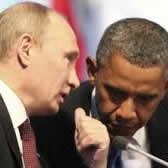(KU) As Vladimir Putin recently withdrew from a landmark nuclear agreement, policymakers and media pointed it out as the latest sign of deterioration of Russian relations with the United States.
This follows the 2014 Russian annexation of Crimea and subsequent support of rebels fighting against Ukraine as well as the 2008 military operation in Georgia.
Amid the criticism for Putin's actions, some foreign policy scholars have argued that territorial expansion or even imperialism is in Russia's DNA, but a University of Kansas researcher who examines international relations says recent hard and soft power projections in Russia tell a different story.
"We need to dig deeper into Russia's own views of international politics in order to understand its foreign policy actions and decisions," said Mariya Omelicheva, associate professor of political science.
As author of the recent article published in the journal International Politics, Omelicheva illuminated important differences in the ways Russian leadership views the world, how it defines threats to national and international security, and its views of international actors and its national identity. […]
Read More © University of Kansas











